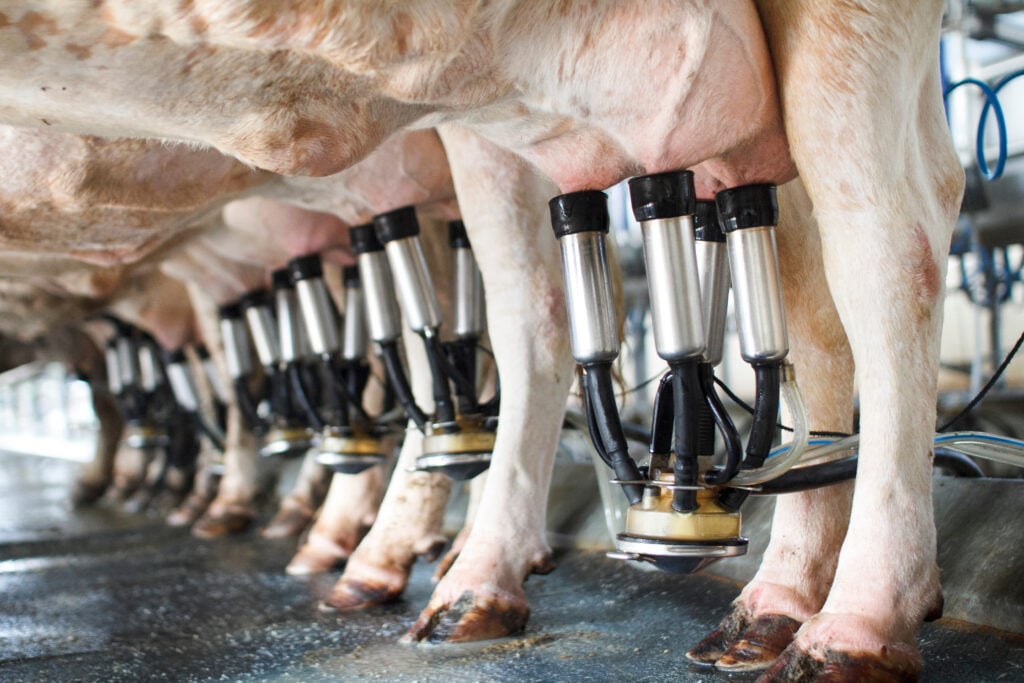A new report found that people who follow vegetarian diets appear to feel less guilty about eating dairy cheese compared to milk.
The University of Stirling study, published in the peer-reviewed journal Appetite, aimed to explore how vegetarians justify their consumption of non-meat animal products (NMAPs). Authors put forward the idea of “the cheese paradox,” the psychological discomfort associated with caring for animals, and paying for them to be exploited. The report builds on previous literature highlighting a similar “meat paradox” among meat-eaters.
Many vegetarians abstain from eating meat due to the fact that they are morally opposed to it. Authors point out, however, that the cheese and egg industries are arguably even crueler to animals than meat. Vegetarians also tend to get more calories than any other dietary group from cheese, eggs, and yogurt, and eat almost double the amount of cheese than meat-eaters.
Cheese versus milk

The authors spoke to 12 vegetarians for the study. They found that interviewees were more likely to have negative connotations of milk than of cheese. Authors note that 10 out of 12 were “strongly averse” to drinking fluid milk. They also had stronger negative connotations of this product than other NMAPs. Despite the fact that cheese is made from milk, it was the food that interviewees were most attached to. They also mostly held positive perceptions of it.
“To me there’s something about cheese that makes me feel a bit less disgusted than with milk,” one of the interviewees is quotes as saying. “I feel like milk is more of an example of that industry and the sort of brutality that cows face in industrial farms … I know they come from the same source, but for some reason milk is such a worse example of it to me.”
Why is cheese so accepted?
Cheese production is considered every bit as brutal as milk, since it’s a direct product of it. What’s more, it takes around 10 liters of milk to produce 1kg of cheese.
“It is interesting that someone would feel ethically worse about consuming milk than cheese since they come from the same source,” study author Devon Docherty told Plant Based News (PBN). “While most vegetarians in our study avidly consumed cheese – citing its tastiness – they actively avoided liquid milk which evoked feelings of disgust and triggered empathy towards dairy cows.”
Docherty suggests that dissociation could be one reason for this greater acceptance of cheese. As the product is more processed and further removed from the animal source, people are able to more distance themselves from its reality.
“Another possible contributing factor is that plant-based milk alternatives are currently more widely accepted by consumers than plant-based cheese alternatives, which makes ditching milk easier,” Docherty added. “Plant-based cheese manufacturers should continue to strive to make their products more similar to dairy cheese in taste, texture, and affordability.”
The cruelty of dairy farming

Each year in the UK, around 1.85 million cows are used in the dairy industry. People often romanticize dairy, with children’s books frequently featuring red-cheeked farmers milking smiling cows in green fields.
But many people believe “dairy cows” to suffer among the worst of any animals we use for food. In order to produce milk, cows must get pregnant and give birth. Their babies are typically taken from them within hours.
Cows form powerful bonds with their babies, and being separated from them takes a huge psychological toll. They often below out for their calves for days.
Conditions like mastitis and lameness are rife among dairy cows. They have been selectively bred to produce around 2.5x the amount of milk they normally would, and this has a huge impact on their bodies. They are also forced to stand around in unnatural conditions for long stretches of time while being milked.
When their bodies are considered “spent” and they are no longer producing a profitable amount of milk, cows are sent to the slaughterhouse and killed for cheap meat.






